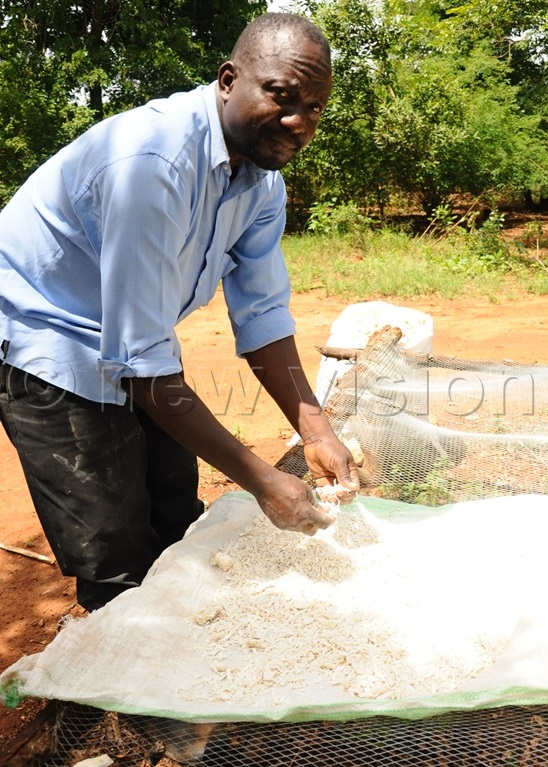By Umar Nsubuga
Solomon Senoga, a passionate cassava farmer from Nakabululu village in Luwero district, has been dedicated to farming for over a decade.
His love for agriculture is deeply ingrained, an “inborn” connection that has driven him to not only cultivate cassava but also guide other farmers in the region.
Over the years, Senoga has turned his expertise into a valuable resource for his community, sharing his knowledge on cassava farming and processing, with a particular focus on producing cassava flour.
He says the process of turning raw cassava into flour requires patience and skill, both of which he has honed over the years.
Making cassava flour involves several key steps, each requiring careful attention to detail. Senoga’s method is straightforward but effective, ensuring that the end product is of the highest quality.
The process begins with harvesting mature cassava tubers, typically after 12 to 18 months of growth. Senoga explains that timing is crucial, as waiting too long can lead to deteriorating quality in the roots.
“Once harvested, the cassava roots are thoroughly cleaned to remove any soil or debris. Peeling the cassava is an essential step to ensure that only the edible part of the root is processed,” he explains.
Senoga uses simple tools to peel the tubers by hand, a labor-intensive but necessary task to maintain quality.
After peeling, he says the cassava is chopped into small pieces. These pieces are then spread out under the sun to dry. Drying is a critical step that affects the texture and flavor of the flour.
Senoga ensures the pieces are evenly distributed, allowing for proper airflow and faster drying. Once the cassava is thoroughly dried, it is ground into a fine powder.

Senoga often takes his dried cassava to a local mill, where modern grinding machines ensure that the flour is smooth and consistent in texture.
“After grinding, the flour is sifted to remove any large particles, ensuring a uniform product. The finished flour is then packaged for sale or storage, ready to be used in various traditional dishes like posho or for making snacks and baked goods,” he explains.
Cassava flour is gluten-free and packed with essential nutrients, making it a popular alternative to wheat flour.
For Senoga, the shift from growing cassava to producing flour was a game changer, offering him an additional income stream and providing a much-needed staple to local markets.
He now supplies not only his household but also neighboring villages, ensuring that many families have access to affordable, nutritious flour.
Moreover, Senoga has become a mentor to other farmers in Nakabululu village.
He holds regular meetings with fellow farmers, teaching them the best practices in cassava cultivation and how to process their harvest into flour. His guidance has helped many small-scale farmers increase their productivity and improve their livelihoods.





